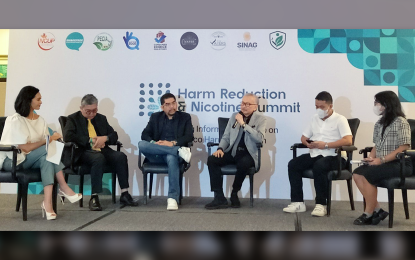MANILA – Tobacco harm reduction advocates signed a manifesto calling for multi-sectoral measures toward a smoke-free country through accessible science-backed data and alternatives to tobacco products.
The manifesto was signed by representatives from various consumer and advocacy groups at a hotel in Mandaluyong City.
Among other points, the manifesto calls for empowering the public by providing “better choices instead of continuing to smoke harmful cigarettes.”
It emphasized the need “to recognize that tobacco harm reduction is a lifeline, especially for adult smokers who do not quit.”
It also highlighted the importance “to assert our national sovereignty by defending our Vape Law on the global stage, which recognizes tobacco harm reduction as a public health strategy.”
Advocates said the Vaporized Nicotine and Non-Nicotine Products Regulation Act aims to address the effects of smoking, ensure that the sale of vaporized nicotine and non-nicotine products is prohibited among minors, and prevent illicit trade of these products.
Citing available data, the advocates said the smoking rate among Filipino adults rose to 23.3 percent in 2023 from 18.5 percent in 2021, creating a need to provide alternatives to those who want to quit tobacco smoking.
One advocate stated that the Vape Law provides an option for smokers who want to quit tobacco use but cannot do so immediately because smoking is already part of their system.
He said authorities should explain to the public, especially minors, the distinction between tobacco products and vaporized nicotine and non-nicotine products.
“So, if they understand this distinction, they would be discouraged from using vapes,” he added.
He noted that while vapes still have negative health effects, they are less harmful compared to tobacco products, adding that some smokers who switched to vapes eventually gave up smoking because their bodies were able to slowly overcome the addiction.






